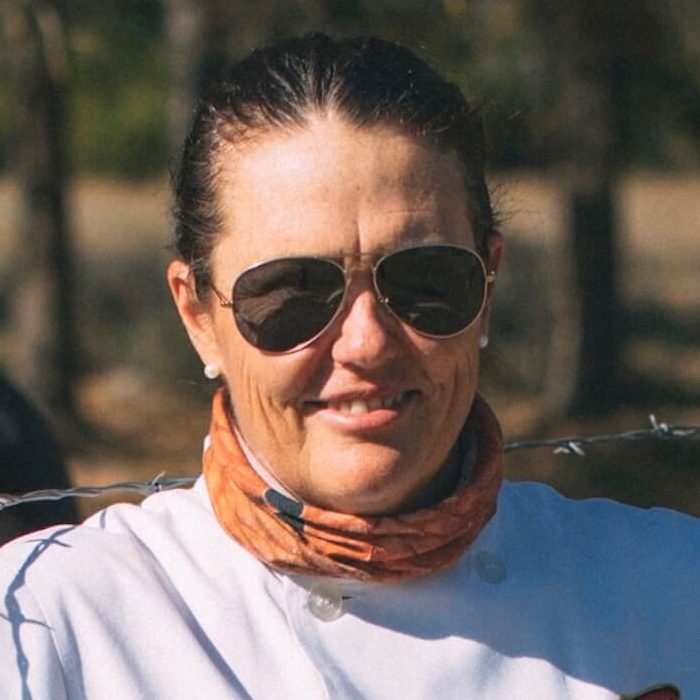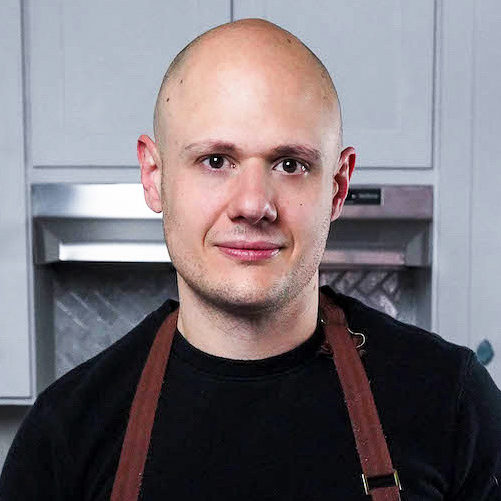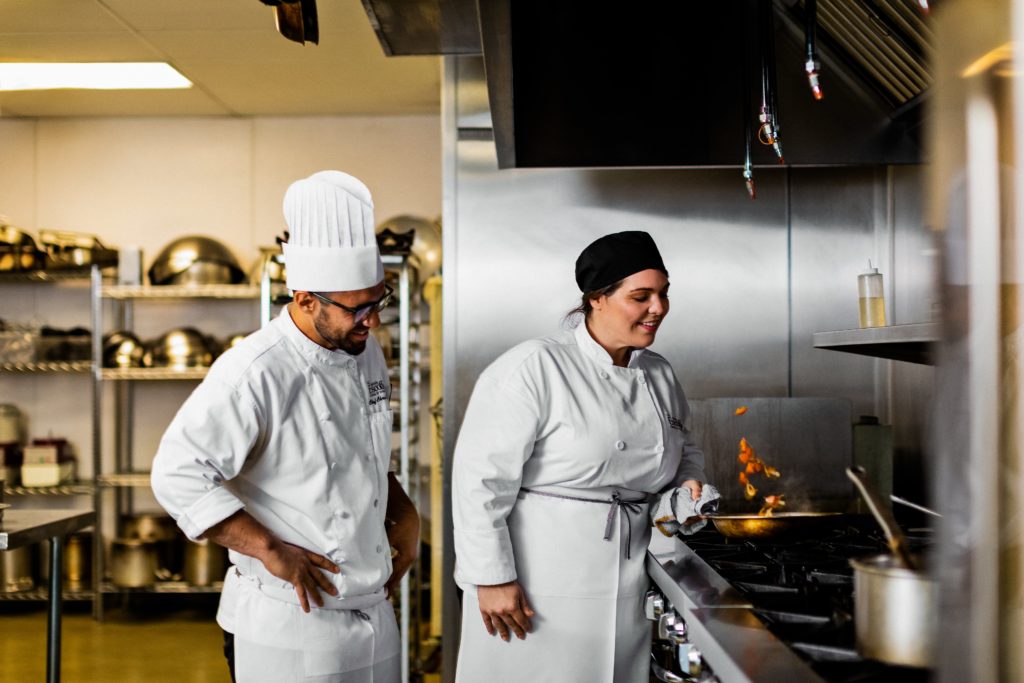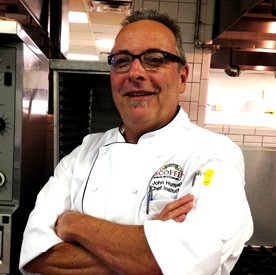Is it your dream to run your own professional kitchen?
Fantastic! Becoming a chef is a worthy goal in an exciting industry.
As you start your culinary journey, you’ll find there’s a lot more to becoming a chef than a degree from culinary school — although that’s a great place to start! It can take several years of hard work and dedication to earn the title of “Chef.” And while no two paths look exactly alike, there are some traits and skills that many chefs share.
Here’s why getting an education isn’t the end of the road to becoming a chef. It’s one important step along the way.
A Chef Needs to Be a Manager — of People, Inventory, and Finances
An executive chef is a department leader with all the responsibilities that entails. In fact, cooking is only one part of a chef’s job.
Chefs must guide the entire kitchen team to ensure that it functions efficiently and profitably. That means a chef has to manage interpersonal conflict, provide positive and negative feedback to their employees, and come up with creative solutions to financial or staffing problems.
Chefs have to minimize waste to prevent high food costs. They must carefully manage the kitchen schedule to ensure the department can perform well without paying for unnecessary kitchen labor. The chef has to plan and price the menu in a way that keeps guests happy, but still brings in a profit after accounting for food and labor costs. As you see, there’s a lot of “behind the scenes” work on the chef’s shoulders!
Mastering these skills comes with time. Cooks will build these skills as they work their way up in supervisor and management positions, before they become chefs.
At Auguste Escoffier School of Culinary Arts, students explore many of these topics to build their business foundations. In Business & Professional Communications, students study listening methods, conflict resolution, and oral presentations, which may be helpful in demonstrating techniques. In Restaurant Operations, they complete coursework related to menu planning and price analysis, as well as training employees and creating a positive work environment.
“I had started the business before I started Escoffier, but I had been struggling to figure out how to do the numbers. Culinary school at Escoffier really put it all together for me, whether it was the financial side of running a business, the prep, or knowing how to train a chef.”
Chef Freida Nicole Davenport, Escoffier Graduate, Owner, Freida’s Sweets and Meats, Food Network “Chopped Grill Masters” & TLC “BBQ Pitmasters” Contestant
A Chef Should Be Comfortable Providing Mentorship
Chefs are often guides to younger and newer cooks. This means they need to have both the education and the real-world experience to serve in this leadership role.
Right out of culinary school, graduates have some great cooking skills. But unless they had significant restaurant or kitchen experience, they probably don’t have the wisdom (yet!) to provide mentorship to other cooks.
Chef mentors do more than teach skills (although they may do that, too.) Mentors can provide guidance and career advice that makes it easier for young cooks to navigate their career paths.
“I have been an active mentor of the [Escoffier] Alumni Association, and I’m always willing to participate. Youth are always the next generation of everything that we’re going to do, so it’s important to maintain relationships with them.”
Chris McAdams, Escoffier Boulder Graduate and Chef Consultant
Escoffier students may find mentorship from their Chef Instructors during their time in school, and may find further mentors in the Escoffier Alumni Association. Plus, students in all Escoffier programs will complete a culinary externship before they graduate. This work experience provides yet another opportunity to work with seasoned cooks and build a mentor-mentee relationship with experienced culinarians.
By internalizing the lessons they learn both on the job and from their mentors, cooks can gain the wisdom that they’ll need to give good advice to the next generation of cooks.
A Chef Knows More than One Way To Do Things
Culinary school can be intense. There is a lot of material to cover in a limited amount of time, so students can’t possibly pick up every technique that they may find useful during their careers.
Chef Instructors will teach tried-and-true cooking skills to give students the tools they’ll need. But that doesn’t mean there aren’t other ways to do things. Even something as simple as cooking bacon can be done half a dozen different ways!
At culinary school, students get the chance to learn from a variety of chefs in their various courses. Each Chef Instructor may have a unique approach — and so will the Executive Chefs that you work for in the future. A career of working under several chefs can open up new methods and techniques that can expand a cook’s culinary horizons.
“I think [culinary school] is a cool experience for the student because when they move through the course, they see four or five different chefs, personalities, teaching styles, and communication styles.”
Escoffier Chef Instructor John Hummel
By building on that original culinary school knowledge, cooks add more tools to their arsenals that can help them create more effective recipes and procedures when they’re in charge.
A Chef Has to Be THE Expert in Their Kitchen
A restaurant or food service business is a little world of its own, with the executive chef at the top. Prep cooks, line cooks, kitchen managers, the sous chef, the front of house (FOH) managers, the general manager, the owner — they’ll all be coming to you with questions about the right way, the best way, how you want things done.
That doesn’t mean you have to know every single piece of food knowledge ever written. But they will expect you to be the most informed person in the kitchen crew.
This will include cooking, of course, but it also includes expertise in operating kitchen equipment, troubleshooting a tricky recipe that isn’t turning out right, and knowing at a glance if a protein needs another minute to reach perfect medium rare.
A culinary school education can greatly improve that kind of knowledge. But some will also come from several years of culinary experience. Chefs continue to learn and improve long after culinary school — and long after they’ve earned the title of “Chef.”
Becoming a Chef is Possible
If your dream is to become a chef, it’s within reach. A degree or diploma from Escoffier can provide tools and access to mentors that will help you along the way. While you won’t graduate as a chef, you’ll be that much closer to reaching the title!
Get the guidance you need to kick off your culinary career and start working toward that dream.
Learn more about culinary and pastry careers with these articles:


 “I had started the business before I started Escoffier, but I had been struggling to figure out how to do the numbers. Culinary school at Escoffier really put it all together for me, whether it was the financial side of running a business, the prep, or knowing how to train a chef.”
“I had started the business before I started Escoffier, but I had been struggling to figure out how to do the numbers. Culinary school at Escoffier really put it all together for me, whether it was the financial side of running a business, the prep, or knowing how to train a chef.” “I have been an active mentor of the [Escoffier] Alumni Association, and I’m always willing to participate. Youth are always the next generation of everything that we’re going to do, so it’s important to maintain relationships with them.”
“I have been an active mentor of the [Escoffier] Alumni Association, and I’m always willing to participate. Youth are always the next generation of everything that we’re going to do, so it’s important to maintain relationships with them.”
 “I think [culinary school] is a cool experience for the student because when they move through the course, they see four or five different chefs, personalities, teaching styles, and communication styles.”
“I think [culinary school] is a cool experience for the student because when they move through the course, they see four or five different chefs, personalities, teaching styles, and communication styles.”


